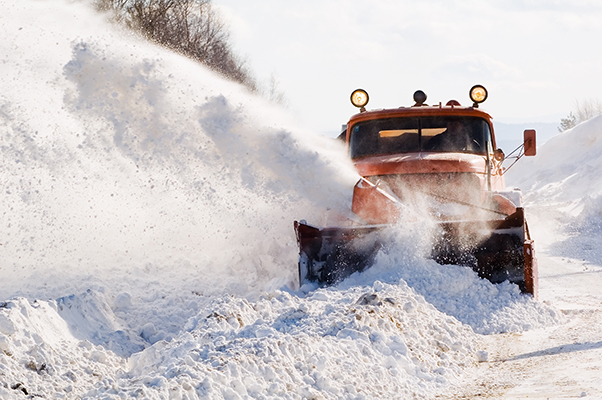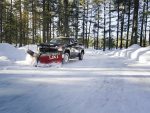 Are you one who waits until the last minute to prepare your vehicles for the winter? Do you find yourself pouring in antifreeze and new oils the night before or the morning of the first freezing temperatures of the season? Do you find yourself having to replace certain parts because you didn’t prepare them properly? If you fall into those categories, listen up. Dan Holdmeyer of Chevron Lubricants is here to help ready your fleet for the cold months ahead.
Are you one who waits until the last minute to prepare your vehicles for the winter? Do you find yourself pouring in antifreeze and new oils the night before or the morning of the first freezing temperatures of the season? Do you find yourself having to replace certain parts because you didn’t prepare them properly? If you fall into those categories, listen up. Dan Holdmeyer of Chevron Lubricants is here to help ready your fleet for the cold months ahead.
MWS: CAN YOU GIVE A BRIEF SYNOPSIS OF YOUR ROLE WITH CHEVRON AND HOW LONG YOU’VE HELD THE POSITION?
HOLDMEYER: For the past six years my role has been the Chevron North American Lubricants Industrial Sector Manager. As the Industrial Sector Manager I am responsible for industrial segments that include construction, mining, agriculture, and waste haulers. My duties include making certain we have the right fluids (which includes coolants, greases, and oils) for each segment and support them with appropriate services and programs to help our customers achieve “Best in Class” performance.
MWS: THIS MONTH WE’RE ALL ABOUT WINTER EQUIPMENT AND PREPARING FLEETS FOR COLD MONTHS. WHAT ARE SOME OF THE MOST IMPORTANT ASPECTS OF WINTERIZATION YOU CAN SHARE WITH US?
HOLDMEYER: Since a portion of my portfolio includes engine coolants, many people easily think of checking their antifreeze, and that is critical. It is good to monitor your coolant system year round. To prepare for winter, one should check the coolant for the proper antifreeze concentration for freeze protection, generally 50% glycol and 50% water provides freeze protection down to -34 degrees F or for extremely cold conditions 60% glycol and 40% water provides freeze protection down to -62 degrees F. The thermostat should be checked for proper operation. Check hoses and connections for leaks and correct any issues. Another important check is your battery for its power, which will be required to start the engine in extreme cold, and check to make sure the terminals are clean and the cables are in good condition.
MWS: ONE THING WE HAVE TO TALK ABOUT WHEN IT COMES TO WORK TRUCKS AND VANS ARE OILS AND LUBRICANTS. WHAT ADVICE DO YOU HAVE FOR OUR READERS?
HOLDMEYER: Synthetic lubricants do provide improved low temperature fluidity allowing for easier starting and better fuel economy during the winter. Besides your engine oil, the transmission fluids and gear oils should be checked and possibly changed to synthetics. If your truck has a centralized grease system, a lower NLGI grade grease should be considered to enable the system to pump the grease to lubrication points in extreme cold.
MWS: WHAT ARE OTHER TIPS YOU’D GIVE FLEET OWNERS TO KEEP THEIR VEHICLES IN TOP SHAPE IN THE WINTER?
HOLDMEYER: With increased biodiesel use, fuel additives and fuel maintenance is even more important. Biodiesel fuel will gel at higher temperatures than conventional diesel fuel, so avoid fuel pump and injector failures. DEF (Diesel Exhaust Fluid) heaters also should be checked. Now is a good time to change wiper blades to enhance vision during winter storms and avoid windshield damage from broken wiper blades. Another trick to improve winter driving vision is to clean headlights with a polishing kit. This prevents snow and slush from sticking easily, allowing headlights to shine brighter.
MWS: AT THE END OF THE DAY, JUST HOW IMPORTANT IS IT FOR OWNERS TO PREP THEIR FLEETS FOR THE WINTER?
HOLDMEYER: Instead of explaining the importance, let me give a examples of some of the consequences that could come for fleets who don’t prepare for winter.
- Belts, hoses, and wipers are more likely to fail or malfunction due to extreme winter conditions
- Roadside breakdowns with expensive repairs including towing and lost revenue
- Frozen fingers
- Cold and brittle parts
- Seals become less supple; leaks occur
- Water in vehicle’s fluids cause corrosion and prevent lubrication; forms ice
- Linkage and hinges become finicky in the cold
- Salt and snow makes a brake job more difficult
In winter, everything takes longer. Thaw things first, clean out snow, salt, etc. because it doesn’t taste so good and stings your eyes if you have to crawl under your truck during winter.
MWS: ADDITIONAL THOUGHTS?
HOLDMEYER: Following the above tips can really help fleet owners looking to winter-proof their fleet. In addition to these tips, Chevron offers a Kool Tools Maintenance Kit to help develop a “Best in Class” coolant maintenance program.




